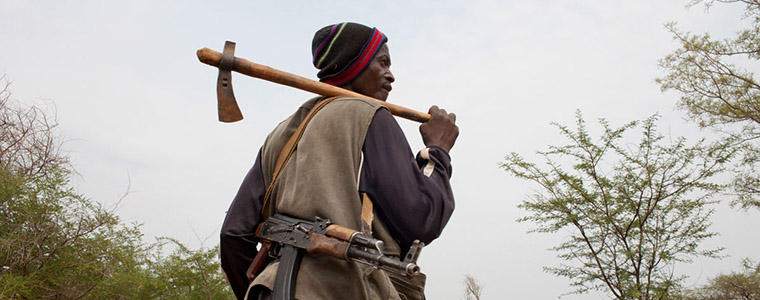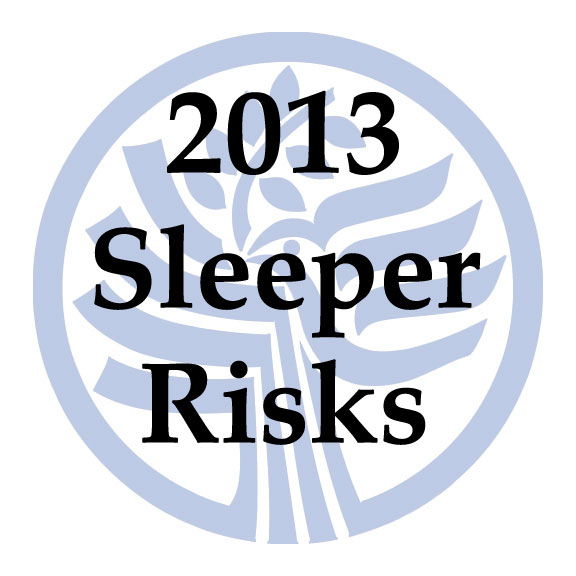South Sudan: Undemocratic Tendencies on the Rise
Part of USIP’s series on sleeper risks
South Sudan may be the world’s newest country, but its five-decade struggle for freedom, peace, and independence from Sudan won wide international support and led to formal statehood on July 9, 2011. Though long-term hopes for a successful democracy remain high and the young government in Juba enjoys significant U.S. and international support, South Sudan’s initial period as a nation-state has included some troubling signs of heavy-handed, undemocratic actions.

 Many of the clearest risks of conflict, violence and instability around the world have received widespread media attention. But a variety of other risks and threats have been smoldering quietly. The United States Institute of Peace (USIP) is engaged in a variety of peacebuilding and conflict management efforts in many of the countries where these lesser-known risks are emerging. In a series of articles, the Institute examines some of these “sleeper risks” through the analytical lens of USIP experts. | Read more about USIP’s series on sleeper risks
Many of the clearest risks of conflict, violence and instability around the world have received widespread media attention. But a variety of other risks and threats have been smoldering quietly. The United States Institute of Peace (USIP) is engaged in a variety of peacebuilding and conflict management efforts in many of the countries where these lesser-known risks are emerging. In a series of articles, the Institute examines some of these “sleeper risks” through the analytical lens of USIP experts. | Read more about USIP’s series on sleeper risks
South Sudan may be the world’s newest country, but its five-decade struggle for freedom, peace, and independence from Sudan won wide international support and led to formal statehood on July 9, 2011. Though long-term hopes for a successful democracy remain high and the young government in Juba enjoys significant U.S. and international support, South Sudan’s initial period as a nation-state has included some troubling signs of heavy-handed, undemocratic actions.
This “creeping authoritarianism,” as USIP Director of Sudan and South Sudan Programs Jon Temin puts it, is not receiving much attention in the international community, but it appears to be raising significant concerns and fears among the population of this tribally mixed and deeply impoverished country.
In recent months, troubling events have included:
- The shooting death of a South Sudanese journalist who had been critical of the government, amid wider reports of harassment and detention of journalists.
- The expulsion of a United Nations human rights official after a U.N. report alleging atrocities by South Sudan’s army in Jonglei state, the scene of substantial inter-tribal fighting and anti-government rebellion. The army has been conducting a tough crackdown in Jonglei related to an effort to confiscate weapons and combat rebels, but its heavy-handed tactics have had sometimes exacerbated violence by turning civilians against the army.
- The shooting down of a U.N. peacekeeping helicopter by South Sudan’s army, which led to the death of four Russian crew members and was condemned by U.N. Secretary-General Ban Ki-moon. (The army termed the incident a regrettable mistake.)
- Continuing lack of progress in developing the constitution that is needed for the new country
Undemocratic tendencies could make building internal peace in South Sudan increasingly difficult over the coming year. The international community is not yet focused on these developments, Temin said, and South Sudan “needs to be held to the same standards expected of other democratic nations.”
Added Temin, “There are an increasing number of red flags. South Sudan’s leaders should live up to the ideals that they themselves articulated as they fought so long for independence.”
Read Features in This Series
- Syria: Regional Fallout from the Civil War (January 29, 2013)
- The Israeli-Palestinian Standoff: More Risks Emerging (February 5, 2013)
- Sudan: Economic Pressures Building (February 12, 2013)
- Pakistan’s Militant, Nuclear Threats Mask Underlying Risk: Water (February 19, 2013)
- <a data-cke-saved-href="..//publications/afghanistan-land-conflicts-pit-nomads-against-villagers-power-brokers-against-each" href="..//publications/afghanistan-land-conflicts-pit-nomads-against-villagers-power-brokers-against-each" "="">Afghanistan Land Conflicts Pit Nomads Against Villagers, Power Brokers Against Each Other (February 21, 2013)



